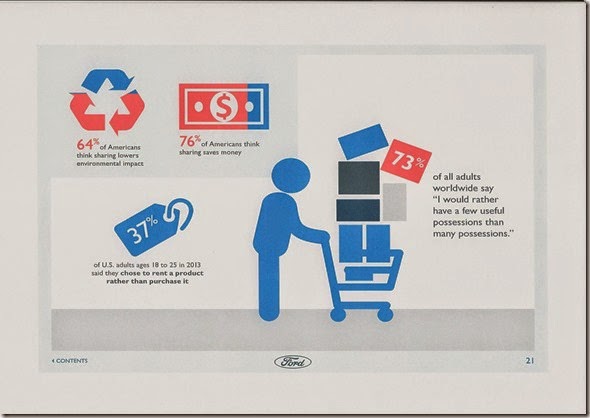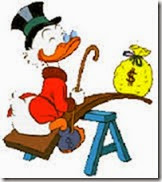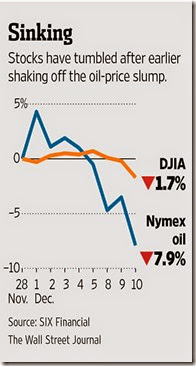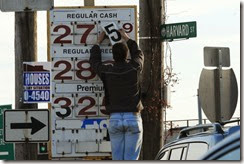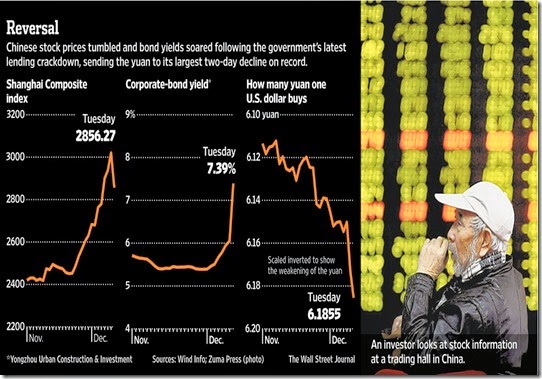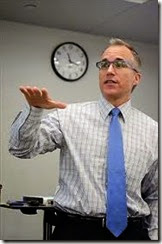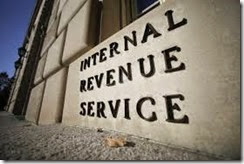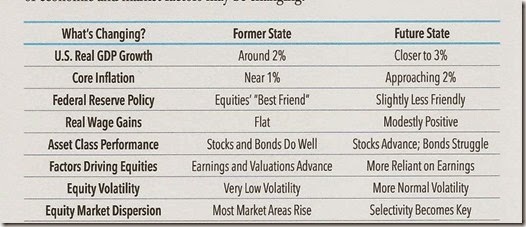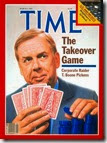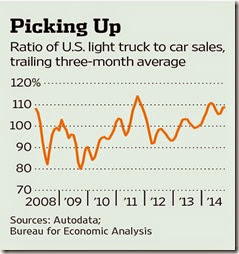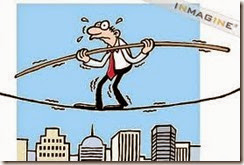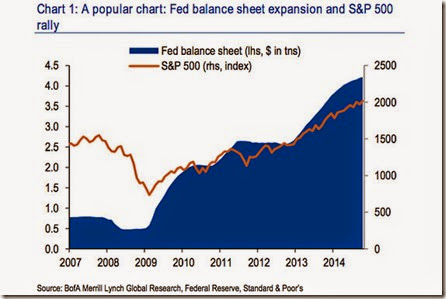 DOW 18,000! In 1974 the DJIA hovered in the neighborhood of 740. When news of Nixon’s impeachment reached the street the Dow shot up about 23 points, one of the biggest days of the year. Today a 100 point move one way or another is common. Investors who bought and held quality, dividend paying companies since the days of Nixon, have been amply rewarded. In 2014, after a five day run the Dow 18,000 number was broken and held. U.S. gross domestic product estimate by the Commerce Department for the third quarter showed economic output expanded by 5%- up from the second quarter’s 4.6% and the best since the third quarter in 2003. Growth came from consumer spending, business investment in new equipment and software and rise in exports. Headwinds are sure to be there in 2014 as a strong dollar could reduce demand for U.S. made goods; falling oil prices could cutback domestic oil drilling; and the housing market still has not shown strong demand. Economists expect 2015 to grow between 2.6%-3%. Inflation just doesn’t seem to be there and with falling oil prices doesn't appear that inflation will show up anytime in 2015. The good news is that the consumer in 2015 will be back. They’ll be spending their savings from the gas pump as if it were a real raise in pay (which in some way it is), and buying what they’ve neglected because of the high cost of energy. The party on low energy prices may not last long as Boone Pickens explained on CNBC the eve of Christmas eve saying that $100 a barrel oil will be back in 12-18 months. This a modified prediction where a few weeks back he said oil pricing would be $100 in six months.WSJ, CNBC 12/23 & 24/2014.
DOW 18,000! In 1974 the DJIA hovered in the neighborhood of 740. When news of Nixon’s impeachment reached the street the Dow shot up about 23 points, one of the biggest days of the year. Today a 100 point move one way or another is common. Investors who bought and held quality, dividend paying companies since the days of Nixon, have been amply rewarded. In 2014, after a five day run the Dow 18,000 number was broken and held. U.S. gross domestic product estimate by the Commerce Department for the third quarter showed economic output expanded by 5%- up from the second quarter’s 4.6% and the best since the third quarter in 2003. Growth came from consumer spending, business investment in new equipment and software and rise in exports. Headwinds are sure to be there in 2014 as a strong dollar could reduce demand for U.S. made goods; falling oil prices could cutback domestic oil drilling; and the housing market still has not shown strong demand. Economists expect 2015 to grow between 2.6%-3%. Inflation just doesn’t seem to be there and with falling oil prices doesn't appear that inflation will show up anytime in 2015. The good news is that the consumer in 2015 will be back. They’ll be spending their savings from the gas pump as if it were a real raise in pay (which in some way it is), and buying what they’ve neglected because of the high cost of energy. The party on low energy prices may not last long as Boone Pickens explained on CNBC the eve of Christmas eve saying that $100 a barrel oil will be back in 12-18 months. This a modified prediction where a few weeks back he said oil pricing would be $100 in six months.WSJ, CNBC 12/23 & 24/2014.
THE WALL STREET JOURNAL REPORTED CHRISTMAS EVE THAT THE U.S. ECONOMY POSTED ITS STRONGEST GROWTH IN MORE THAN A DECADE.
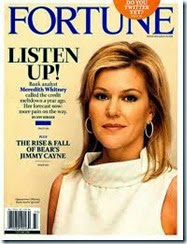 GRASS ISN’T ALWAYS GREENER. Hedge Funds Are Where The Uber-Rich & The Large Institutional Investors Place Their Money. The fees at hedge funds are steep, the rewards are not always great but investors feel that their getting ‘specialized’ treatment with the best and smartest investment managers. Through the month of September this year 664 hedge funds have closed their doors. They either lost too much investor money, had their backers pull cash or bet on the wrong sector or industry. Meredith Whitney who made her name with Oppenheimer covering the banking industry, left and formed her own hedge fund, Kenbelle Capital, L.P., and now finds that in deep trouble. Following her prophesy of banking misdeeds she appeared on 60 Minutes in 2010 and explained that a huge number of cities and states would file for bankruptcy. Her statement roiled the municipal bond market. Outside of normal attrition and the Detroit bankruptcy she was hugely wrong. In 2012 she was named one of the top stock pickers in the United States by the Financial Times. Today she’s reported to have lost her investment-business partner, her fund lost money, and is facing the reality that investment management is not a one trick pony. So if you think hedge funds are money machines and the grass is greener for the uber-rich, it isn’t always so. CNBC.com, Wikipedia.com 12/20/2014
GRASS ISN’T ALWAYS GREENER. Hedge Funds Are Where The Uber-Rich & The Large Institutional Investors Place Their Money. The fees at hedge funds are steep, the rewards are not always great but investors feel that their getting ‘specialized’ treatment with the best and smartest investment managers. Through the month of September this year 664 hedge funds have closed their doors. They either lost too much investor money, had their backers pull cash or bet on the wrong sector or industry. Meredith Whitney who made her name with Oppenheimer covering the banking industry, left and formed her own hedge fund, Kenbelle Capital, L.P., and now finds that in deep trouble. Following her prophesy of banking misdeeds she appeared on 60 Minutes in 2010 and explained that a huge number of cities and states would file for bankruptcy. Her statement roiled the municipal bond market. Outside of normal attrition and the Detroit bankruptcy she was hugely wrong. In 2012 she was named one of the top stock pickers in the United States by the Financial Times. Today she’s reported to have lost her investment-business partner, her fund lost money, and is facing the reality that investment management is not a one trick pony. So if you think hedge funds are money machines and the grass is greener for the uber-rich, it isn’t always so. CNBC.com, Wikipedia.com 12/20/2014
 Consider Art? Homes need decoration and many of us simply head to the local Target store and stock up with pictures and art that matches the sofa and drapes. As long as the color doesn’t clash we’re pleased. If and when we get a new furniture we simply take down the old and slap up another suitable color framed print. However with a little study you can mix investment with home decoration. Rather than buying something worth almost nothing because it has pleasing colors one can create an art collection to hang on the wall. Owning something you really enjoy, and may be worth at least what you paid for it, versus hanging a throw away poster takes time and a little study. For example Amazon has a Fine Art section that many people know little about. You can buy an original piece of art or a copy. While the above ‘Untitled Pink’ listed on Amazon may not be your cup of tea (asking price $12,500), there are plenty of offerings in modest prices along with instructional books. Other places to shop for real art are Detroit area auctions (specifically through DuMouchelles), hundreds of second hand, consignment stores, a handful of art dealers and estate sales.
Consider Art? Homes need decoration and many of us simply head to the local Target store and stock up with pictures and art that matches the sofa and drapes. As long as the color doesn’t clash we’re pleased. If and when we get a new furniture we simply take down the old and slap up another suitable color framed print. However with a little study you can mix investment with home decoration. Rather than buying something worth almost nothing because it has pleasing colors one can create an art collection to hang on the wall. Owning something you really enjoy, and may be worth at least what you paid for it, versus hanging a throw away poster takes time and a little study. For example Amazon has a Fine Art section that many people know little about. You can buy an original piece of art or a copy. While the above ‘Untitled Pink’ listed on Amazon may not be your cup of tea (asking price $12,500), there are plenty of offerings in modest prices along with instructional books. Other places to shop for real art are Detroit area auctions (specifically through DuMouchelles), hundreds of second hand, consignment stores, a handful of art dealers and estate sales.
We Got Even With North Korea for the Sony Hack!  Mike Myers opened Saturday Night Live 12/20 as Dr. Evil. That was it- Mike Myers opened as Dr. Evil. Monday news reached us that North Korea was experiencing internet outages of historic proportion for a period of ten hours. This was not their normal sporadic outage but one that was continuous giving the impression someone was controlling the North Korean net.
Mike Myers opened Saturday Night Live 12/20 as Dr. Evil. That was it- Mike Myers opened as Dr. Evil. Monday news reached us that North Korea was experiencing internet outages of historic proportion for a period of ten hours. This was not their normal sporadic outage but one that was continuous giving the impression someone was controlling the North Korean net.
Out-Performing The Matching Index. Ye Olde Conversation has been what’s better: Buying an Index Fund or an Active Managed Fund? While some investors believe that active managed mutual funds should outperform their counterpart index the reality is that investors buy the fund not so much for the return but for the (1) Active management (2) Risk basis (3) Manager Philosophy (4) Dividends. SPIVA U.S. Scorecard (A Dow Jones, S&P Comparison versus Active) provided a historical study ending in 2013 of the percentage of U.S. Equity Funds Outperformed by Benchmarks. In the five years ending 2013 the study found of all large cap funds measured against the S&P 500 Index 72.2% were outperformed. In Real Estate Funds 80.28% were outperformed by the S&P U.S. Real Estate Investment Trust. The study goes on to illustrate that the shorter the investment time period the better the chances of the fund outperforming an index. Longer term, not so much. The upshot is don’t look for an active managed portfolio to consistently outperform any index.
Ford 2015 Trend Study found that there are 2 billion Gen X’ers world wide and, interestingly and unlike their predecessors, they find failure not as something bad. A great percentage would rather rent than own and a majority would have fewer than more possessions. X’ers, like Boomers, will morph as time goes on. That you can bet on. You can find the entire study online by going online searching Ford 2015 Trend report.
Carrots Help You See Better!  USA Today reported that the myth that carrots help you see better originated during WW2 when the British didn’t want to give away why their pilots were able to shoot down so many German planes because it would give away their new invention radar. So the clever Brits made up the story that they fed their pilots extra helpings of carrots which aided in their vision. While the vitamins in carrots help in a lot of ways they won’t make poor vision better, or good vision extraordinary.
USA Today reported that the myth that carrots help you see better originated during WW2 when the British didn’t want to give away why their pilots were able to shoot down so many German planes because it would give away their new invention radar. So the clever Brits made up the story that they fed their pilots extra helpings of carrots which aided in their vision. While the vitamins in carrots help in a lot of ways they won’t make poor vision better, or good vision extraordinary.
Bob Doll  appeared as co-host December 22nd on the CNBC Morning Squawk and said that were in the 6th inning of the economic stock market recovery and the 7th inning in pricing.
appeared as co-host December 22nd on the CNBC Morning Squawk and said that were in the 6th inning of the economic stock market recovery and the 7th inning in pricing.
ART CASHIN’S WORDS OF WISDOM.  Speaking to Bob Pisanti at the close Monday on CNBC Cashin offered up good news for the markets in 2015. Reasons were that historically stocks performed well in a year before Presidential elections and also in years that ended in the number five. I don’t know whether that’s considered a technical or fundamental reason. I knew someone who once picked horses at the race track that same way.
Speaking to Bob Pisanti at the close Monday on CNBC Cashin offered up good news for the markets in 2015. Reasons were that historically stocks performed well in a year before Presidential elections and also in years that ended in the number five. I don’t know whether that’s considered a technical or fundamental reason. I knew someone who once picked horses at the race track that same way.
 Remember that was a short trading week and with less than the usual volume. Markets closed to another record highs Monday & Tuesday, breaking 18,000 on the DJIA.
Remember that was a short trading week and with less than the usual volume. Markets closed to another record highs Monday & Tuesday, breaking 18,000 on the DJIA.

‘Just keep moving.’ The secret to long life from Dick Van Dyke.
Have a Safe & Enjoyable New Year!
Questions call Paul @ 586 295 0430 or write him at pstanley@westminsterfinancial.com. Share this blog with someone who cares about their money.
Securities offered through Westminster Financial Securities, Inc. Member FINRA/SIPC.
